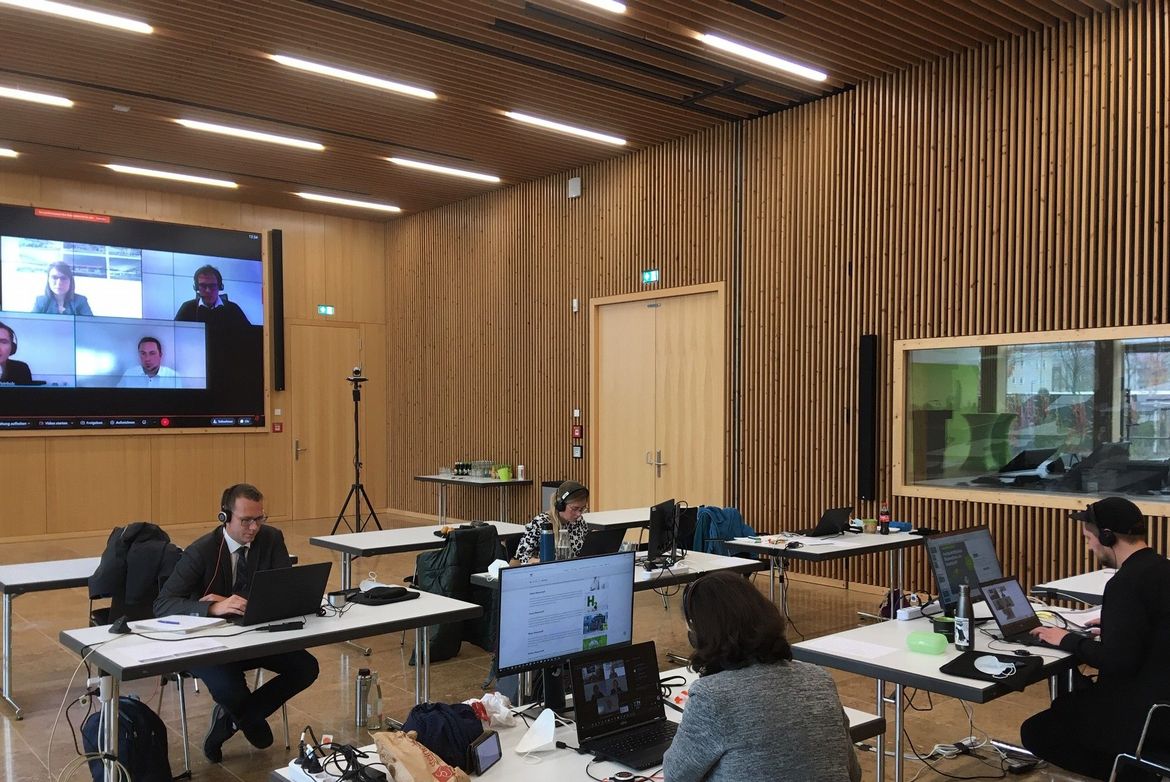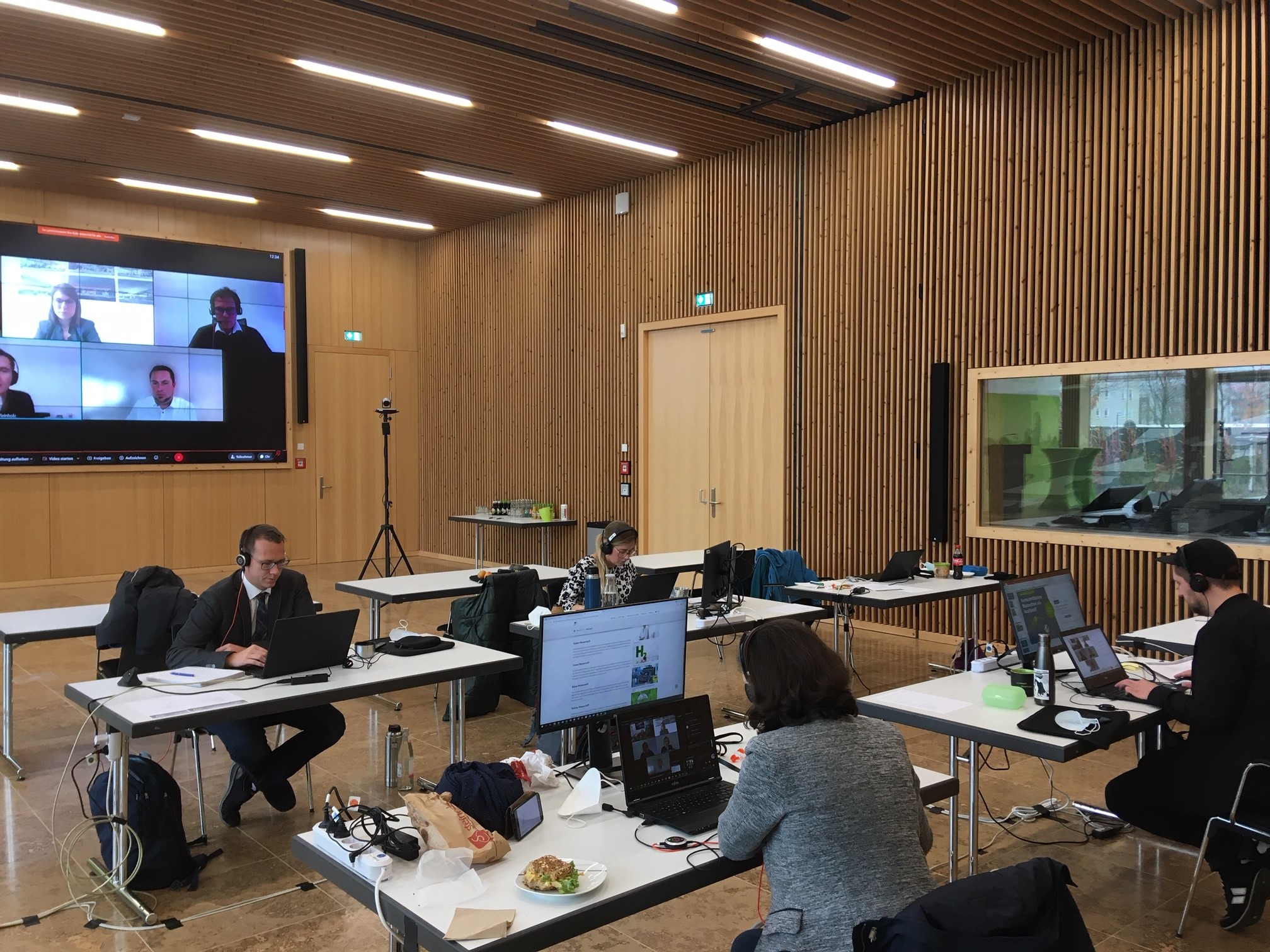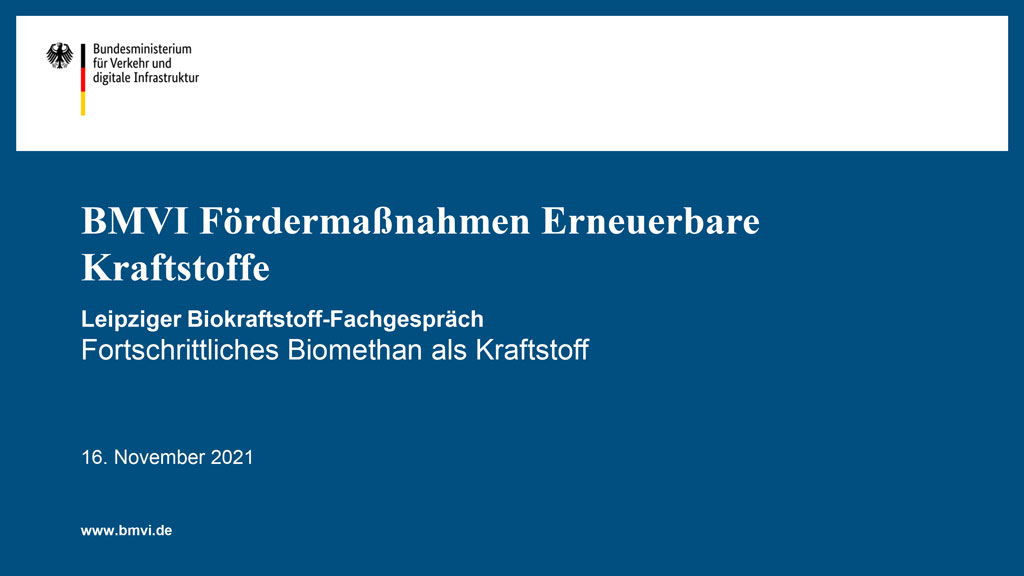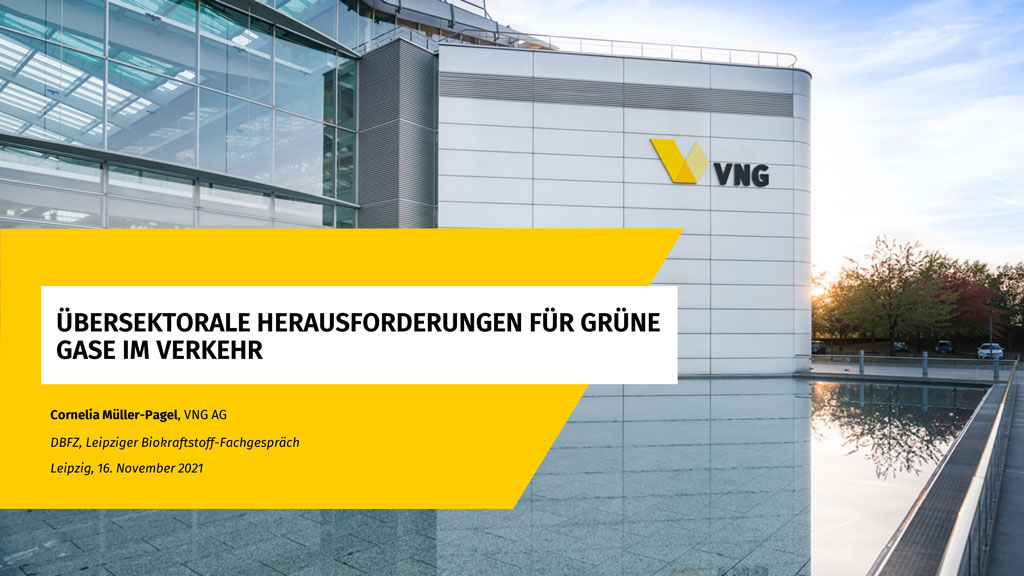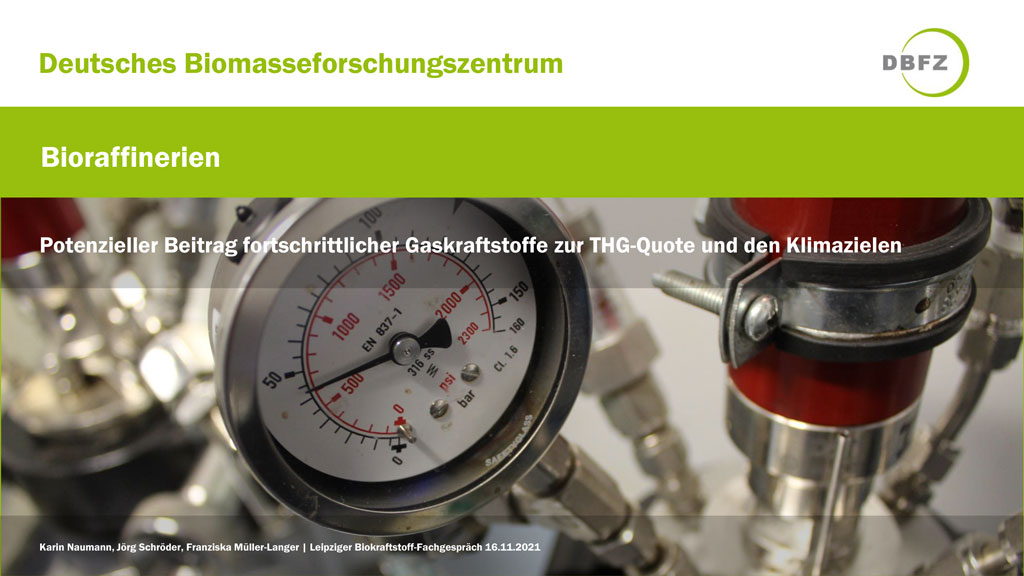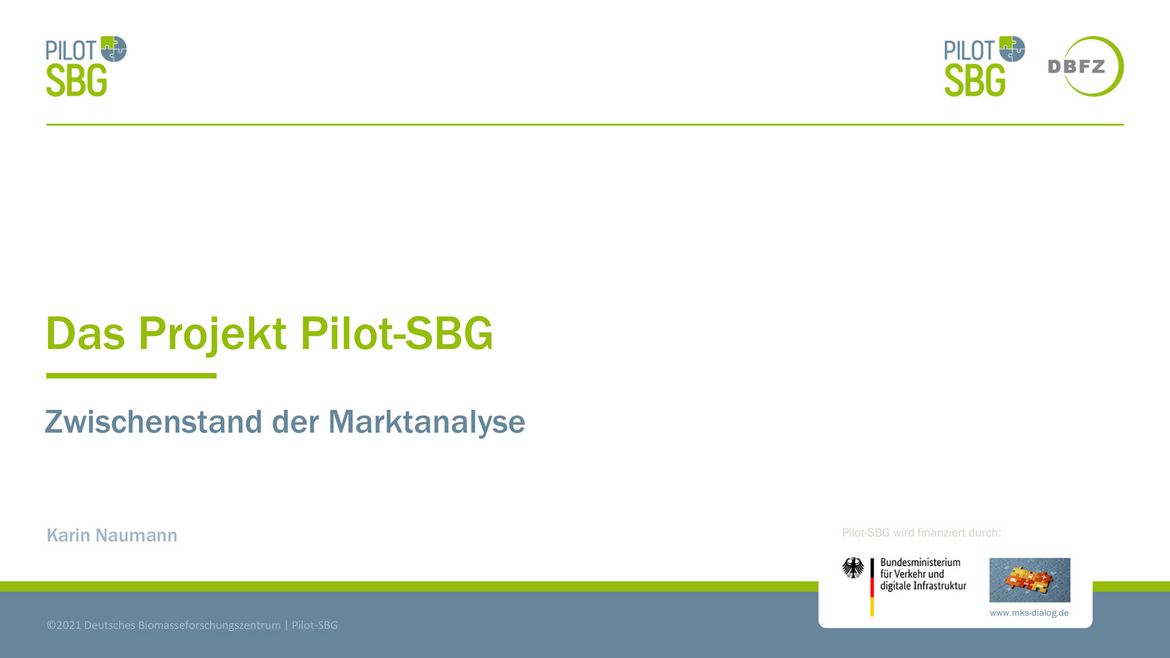Leipzig Biofuel Symposium 2021 (Online)
Dual event on the topic of "Advanced biomethane as a fuel"
The 2021 edition of the Leipzig Biofuel Symposium was a double event on the topic of "Advanced Biomethane as Fuel". In the morning session, speakers addressed "The GHG avoidance quota: can Germany meet 2030 targets without gas fuels?". Framework conditions for advanced biomethane were highlighted. In a subsequent panel discussion with partners from politics, science and practice, it was discussed which alternatives could be used if 2.6 percent gas fuel in the drive mix of road transport cannot be realized by 2030.
In the afternoon, the focus shifted from theory to practice: the project "Pilot SBG - Bioresources and Hydrogen to Methane as Fuel" was presented. A workshop was held to determine the framework conditions that need to be in place and the adjustments that need to be made to existing plants and their raw material inputs in order to implement the concept in full or in part.
The quota for GHG avoidance | Can Germany achieve the 2030 targets without gas fuel share?
| TIME | PROGRAM |
|---|---|
9:00 a.m. | Online registration |
| Moderation Johannes Daum (NOW GmbH) | |
| 9:30 - 9:35 a.m. | Welcome |
| 9:35 Uhr - 10:00 a.m. | Statements Daniel Vilela Oliveira, Federal Ministry for the Environment, Nature Conservation and Nuclear Safety (BMU) Matthias Spöttle, Federal Ministry of Digital and Transport (BMDV) |
| 10:00 - 10:25 a.m. | Suprasectoral challenges for green gases in transport |
| 10:25 - 10:50 a.m. | Potential contribution of advanced gas fuels to GHG quota and climate targets |
| 10:50 - 11:05 a.m. | The role of gas fuels in long-term scenarios |
| 11:05 - 11:30 a.m. | BREAK |
| 11:30 a.m. - 12:50 p.m. | Panel discussion Toni Reinholz (Deutsche Energie-Agentur) Sebastian Gröblinghoff (Geschäftsführer LIQVIS GmbH) |
| 12:50- 13:00 p.m. | Conclusion and final moderation |
Workshop. From theory to practice | The Pilot-SBG project
As part of the mobility and fuel strategy, the model project PILOT-SBG - Bioresources and Hydrogen to Methane as Fuel is currently being implemented at the DBFZ. In this project, which will last several years, a pilot plant is being built on a pilot plant scale. In the main process step, biogenic residues, by-products and waste will be converted into biogas by anaerobic fermentation. In a downstream synthesis step, the main product methane is produced by adding renewable hydrogen. This is to be used as a renewable fuel in transport. As secondary processes, raw material and process water treatment as well as nutrient recovery are planned. Accompanying investigations are to be carried out to determine, among other things, which raw material potentials exist and whether existing plants are suitable for conversion.
During the workshop, aspects of the market analysis carried out were put up for discussion and compared with the experiences and findings of the practice partners. On the one hand, framework conditions such as laws, regulations and standards played a role, and on the other hand, technical aspects such as changes in the use of raw materials or plant adaptations. Furthermore, the development of new markets, in particular with a focus on fuels for the transport sector, is of central importance. In addition to the advantages and disadvantages of individual aspects, this workshop also discussed opportunities and risks in the agricultural sector, based on the origin of the raw materials.
| TIME | PROGRAM | |||
|---|---|---|---|---|
14:00 - 14:10 p.m. | Opening remarks | |||
| 14:10 - 14:30 p.m. | Keynote presentation | |||
| 14:30 - 16:30 p.m. | Workshop on the adaptation of established utilization paths | |||
The Pilot SBG project - interim status of the market analysis Post-EEG concepts in the agricultural sector | ||||
Moderated discussion on framework conditions and technological options Discussion Part 1 | Conversion and re-use of existing plants | ||||
| 16:30 - 16:40 p.m. | BREAK | |||
| 16:40 - 17:00 p.m. | Summary of results and closing remarks | |||
